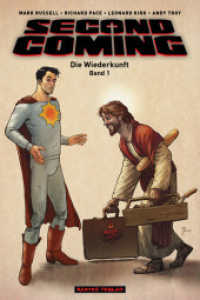Full Description
This book explores the evolution of the university, moving from its classical focus on Bildung and its symbolic association with ruins, to the contemporary struggle to define the role of values in shaping society through education and research. Education and research are presented as crucial phenomena for societal development, while individualism is highlighted as a key factor in understanding the interaction between society and the surrounding world. We briefly examine the international and multidisciplinary nature of modern education and research, emphasizing the influence of technological progress on their aims and practices. By linking educational philosophies from various cultural epistemes, this book reviews contributions from Johann Heinrich Pestalozzi (Swiss educational reformer), Friedrich Froebel (German educational reformer), John Dewey (American pragmatist), Miguel de Unamuno and Ortega y Gasset (Spanish intellectuals), Paul Natorp (neo-Kantian pedagogue), Maria Montessori (creator of the Montessori method), Jean Piaget (who connected epistemology with psychology), and Bertrand Russell (British philosopher and educator). The book contextualizes the role of social factors in shaping education>al practices across cultural contexts. Foundational ideas from Rousseau, Kant, and Hegel are discussed, along with contributions by Natorp and Herbart to social pedagogy and individual ethics. Subsequent sections delve into three core areas: ethical issues in education, the conceptualization of education as a value, and the influence of modern technologies on educational practices. The chapter on research pro>vides a historical overview of how science has been integrated into universities in the West and developed externally in the East. It examines ethical issues in research, positions research as a value, and evaluates the transformative role of modern technologies in scientific inquiry. The discussion transitions to the modern university, tracing its historical mission and organizational models through the perspectives of Vernadsky, Ortega y Gasset, and Russell. Topics such as academic citizenship and the significance of public health research are explored as integral to contemporary university functions. The book also investigates the impact of technological progress on education and research, emphasizing the pivotal role of university-driven public health research. The following chapter, Case Study: Teaching and Research in Georgia, examines authors' experience with the organization and management of teaching and research in Georgian universities. This case study highlights the challenges faced by universities in a rapidly changing world and reflects on how classical approaches to education and research can be transformed when these institutions become both products of mass consumption and centers of excellence. Georgian universities offer a lens to understand current dynamics and envision the near future of academic life. The final chapter, Human Happiness, explores the concept of happiness through an educational lens. It investigates how education can cultivate a unique sense of fulfillment—a form of pleasure that, while akin to others, is distinct in its reliance on intellectual and personal growth facilitated by learning.
Contents
Preface
Introduction
1. Historical Background
2. Education
3. Research
4. Modern University
5. Case Study: Teaching and Research in Georgia
6. Human Happiness
7. Conclusions
Postscript
Index







